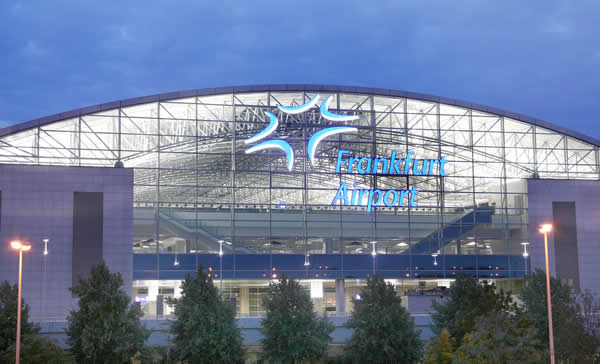GERMANY. Frankfurt Airport owner Fraport Group said it expected passenger traffic to grow by +2% to +4% year-on-year in 2017, with revenues to hit €2.9 billion from €2.59 billion in 2016.
The group result (net profit) is expected to range between €310 million and €350 million – a significant increase compared to the adjusted profit figure of almost €300 million in 2016.
At the 16th Annual General Meeting (AGM) held today in Frankfurt, Fraport Executive Board Chairman Dr. Stefan Schulte commented on the 2016 performance and the outlook for 2017. As reported, the key figure of net retail revenue per passenger slid to €3.49 in 2016 from €3.62 a year earlier. Fraport attributed this to “lower average spend among passengers from China, Russia and Japan, as well as the impact from the depreciation of various currencies against the Euro”.

Dr. Schulte said: “The geopolitical situation and terror risks in Europe were decisive factors contributing to fewer passengers, particularly from Asia and the US. Moreover, Frankfurt Airport’s passenger traffic was also impacted by the strong growth of low-cost carriers, especially at those airports within our catchment area. We have initiated the necessary response to this development by opening up Frankfurt Airport to the low-cost segment. Nevertheless, our core business continues be the premium hub segment and our partnership with Lufthansa as our main customer.”
In 2016, passenger traffic at Frankfurt Airport dipped slightly (-0.4%) to 60.79 million passengers, lagging behind the general market trend.
Fraport’s EBITDA (earnings before interest, taxes, depreciation and amortization) improved by +24.2% to €1,054 million in fiscal 2016, despite slightly declining passenger traffic and the weaker retail business. The strong result was driven by a compensation payment received in connection with the Manila Airport terminal project and the partial sale of Fraport’s stake in its St. Petersburg subsidiary.
To maintain Fraport’s competitiveness, Dr. Schulte emphasised that market changes needed to be taken seriously and addressed properly. He noted: “Customers today expect low-cost flight offers. The low-cost segment already accounts for more than 40% of Europe’s continental air traffic. Moreover, we have been losing significant traffic share to neighbouring competitor airports offering low-cost airline services. Hence, a major aviation gateway like Frankfurt cannot continue to ignore this market trend over the long run.”

To meet expected passenger growth, Fraport is currently assessing the option to move ahead with construction of Pier G, which was already included in the zoning approval for the future Terminal 3 project. Featuring a capacity of four to six million passengers, Pier G would be tailored specifically to meet the requirements of low-cost traffic, while being able to accommodate transfer traffic
At the same time, Fraport will be pushing forward its planned investments elsewhere, including the new T3 project.
The company said: “With the new terminal, Fraport intends to offer a premium product with a clear focus on transfer traffic and network carriers. Fraport is also making additional investments at the two existing terminals to further enhance the passenger experience and increase customer satisfaction, as well as to expand the airport’s service package. Examples include the new station for the Sky Line people-mover at Concourse C of Terminal 1, and the new MY CLOUD transit hotel and a second Fraport VIP Lounge.”












